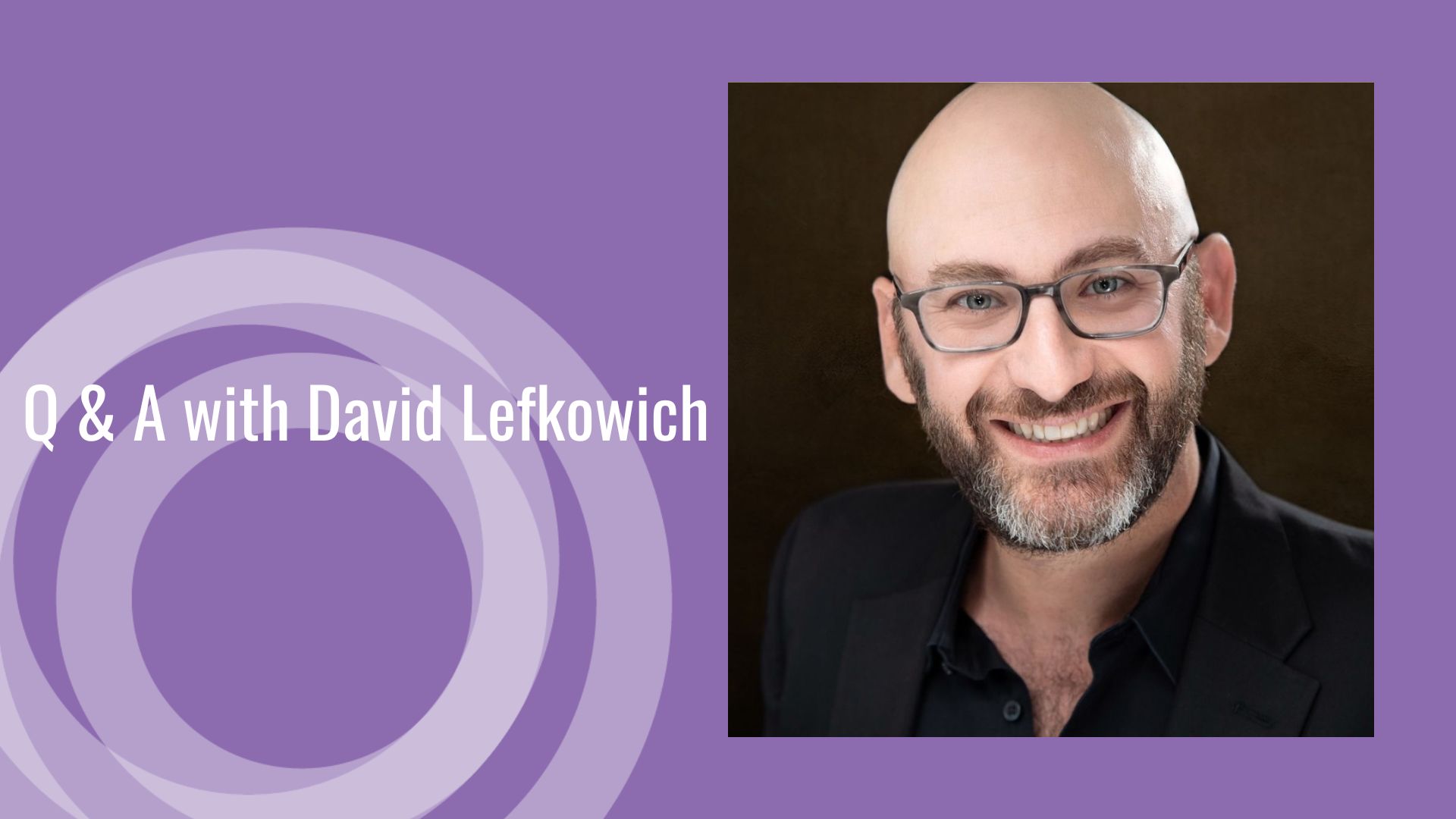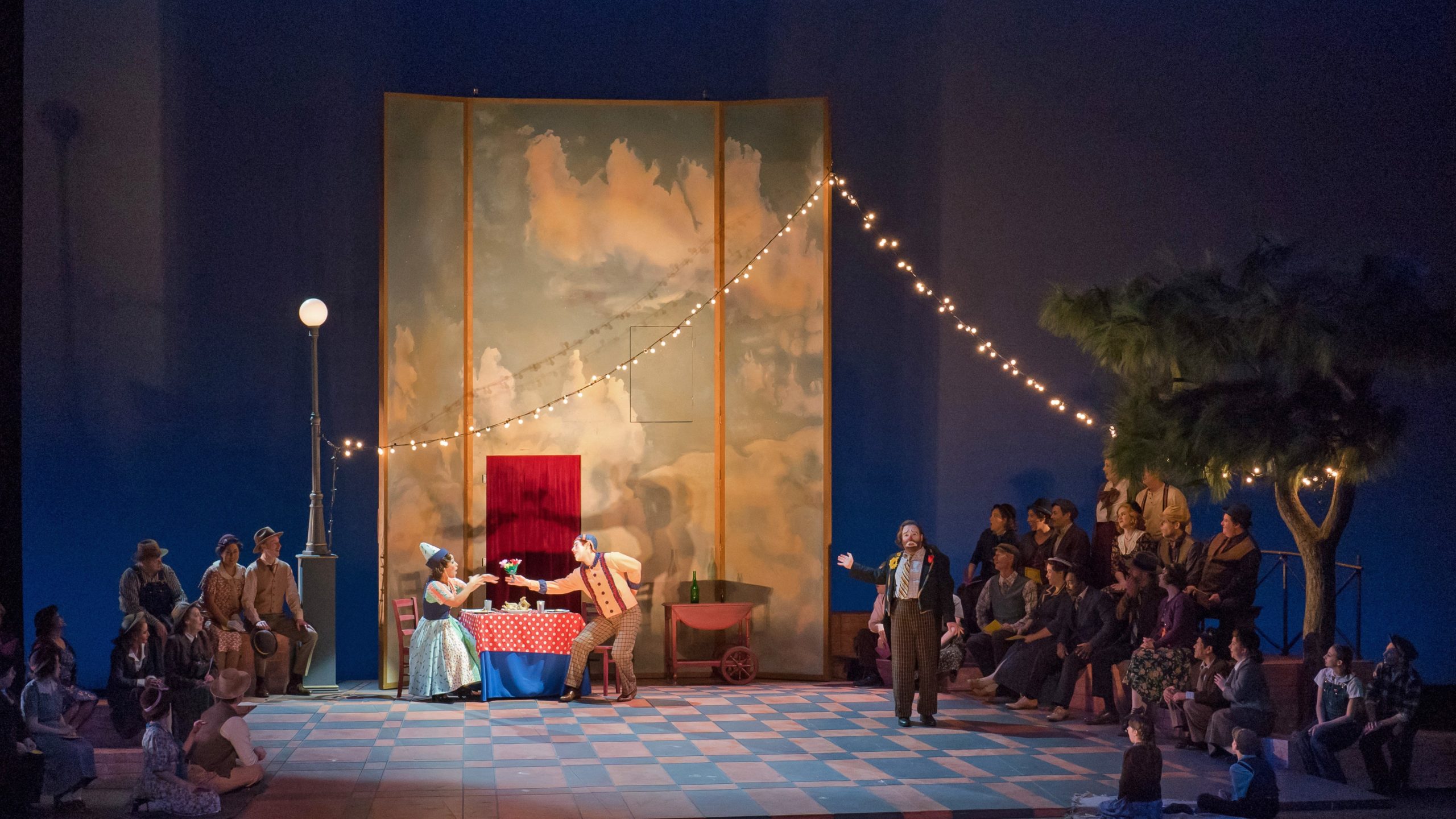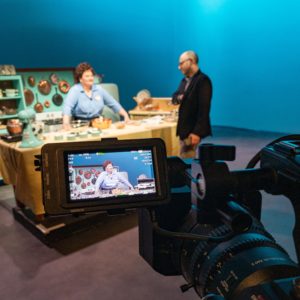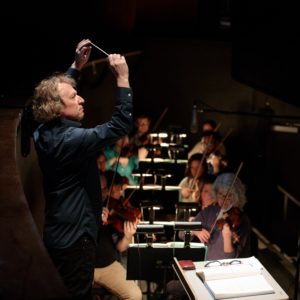Q & A with Director David Lefkowich

By: Suzanne Whitney
Our 40th Anniversary Season marks the third in a row director David Lefkowich has created something masterful for Opera Colorado. During the 2019-20 Season, his beautiful Pagliacci was the final production staged by Opera Colorado before closing our doors to weather the COVID-19 pandemic. Then during the 2020-21 Season, David worked with us to create a fanciful digital program, April in Paris, to delight and connect us. Now, finally, a work directed by David returns to the stage at the Ellie Caulkins Opera House in the form of our celebratory, one-night-only, semi-staged production of Cavalleria rusticana. David’s creative eye brings whimsy, authenticity, and beauty to each project he touches. Learn more about David’s perspective on this Italian masterpiece and how a semi-staged production holds so much excitement for him.
Cavalleria rusticana was originally scheduled for February 2021. Tell us a little bit about the journey it has taken to finally bring this production to the stage at the Ellie.
Well, the very last opera I directed before the COVID-19 shutdown was actually Opera Colorado’s Pagliacci. Soon after that, Opera Colorado approached me about doing Cavalleria rusticana. I said, absolutely! What a wonderful pairing, you know they are often presented on the same evening. But to be able to work on both operas separately was a thrilling prospect.

Photo: Opera Colorado Matthew Staver
Cavalleria rusticana is actually the last of my rescheduled shows from the COVID-19 shutdown. I am super excited to come back to this production. Most importantly, I’m so thankful to actually get to direct this piece, especially for Opera Colorado. I love Opera Colorado. It’s a company I’ve worked for for a long time. It’s great to know Opera Colorado was willing to fulfill their promise and say, yes, this production was cancelled, and it got postponed, but we’re still going to do it—even if it doesn’t look exactly the same as it did when we first talked about it so many years ago.
Tell us a little bit about your history with Cavalleria rusticana.
So actually my first professional job in opera, I was the fight director and assistant stage director for the Glimmerglass Opera production of Cavalleria rusticana and Pagliacci. It was a very unique and interesting production, but it really gave me my appetite for the score, and I have been waiting since 2002 to direct my own production of Cavalleria rusticana!
I’m thrilled that this is my twentieth year directing, and I’m finally able to actually direct Cavalleria rusticana myself. It feels very auspicious like it is the exact right piece at the right time.
So after twenty years away from the piece, what has your preparation process been like?
Well, I memorized the score twenty years ago, so I’m more reviewing it and, and looking at it with fresh eyes. Every time I do a piece, I learn something new about it. So it’s been really lovely. I mean, I’ve had a lot of time to prepare for this production—more time than I often do (laughs)—that has given me the time to prepare something as lovely as the score is. I want my staging to reflect the beauty of Mascagni’s music and of the power of this story.
I think ultimately, having twenty more years of experience under my belt, I’m much more prepared to direct something of this magnitude. I say that because I think when it’s not done well, Cavalleria rusticana can feel a bit overdramatic. So we want to walk a fine line. We want to have a powerful story, but not let it slip into soap opera territory. And I feel like, with twenty more years of life experience, I’m more equipped to tell the story of heartbreak and loss than I was when I was first starting my career in 2002. I mean, these are universal stories that have been around for hundreds of years. So, my job is just to tell the story simply and elegantly and let the music and the drama live for themselves.
Your past productions with Opera Colorado have had such iconic costumes and scenery. How are you approaching this semi-staged production of Cavalleria rusticana?

Photo: Opera Colorado
Well, in some ways, nothing changes. My focus is putting on a wonderful show and using these great performers to tell a great story. I think where the audience will see a difference is now we can feature the orchestra on the stage, instead of featuring the scenic elements. This allows the orchestra to be a visual element in the story we are telling and not just an aural element.
Ultimately Cavalleria rusticana is about emotion. It doesn’t matter what scenery you have or what costumes you have. The emotion never changes. It is melodrama at its absolute finest. By stripping away some of these additional design elements, the audience really gets to focus on the music and the awesome dramatic performances of these singers. This concert version really gets to the heart of Cavalleria rusticana—which is really about this woman, Santuzza, who is in pain, and the town who has let all this unfold. So, what I love about this production is that my job doesn’t change at all. I still get to tell a great story. I still get to put on a wonderful opera, but I get to focus on the parts I love and the parts that make it meaningful and impactful.
You are right, you have the opportunity to focus in on the relationships that drive this opera. How are you planning to develop those for the audience?
Because of the fact that we’re doing this semi-staged, we are going to give a preview of the story of Santuzza, Turridu, Lola, Alfio, and Mamma Lucia to the audience. Instead of the audience just experiencing the story at the moment, they will see all the opening drama played out during the prelude. The audience will be immediately in on what’s going on instead of trying to catch up. We are going to use some movement and some physicality to help tell the story of what happened before the opera begins. And some of the backstory of why we are in this situation in the first place.
I want to give the audience sort of as much detail as possible. I love how descriptive the opening of the score is. This music helps to build a framework for all the other parts of the story that we want to tell.
Since the orchestra, under the baton of Maestro Ari Pelto, will be center stage, are you looking forward to a deeper collaboration with him?

Photographer: Matthew Staver
Photo ID #STA_8929r.JPG
The shows that I’ve done with Maestro Pelto, I count as some of the highlights of my career. He is sensitive. He is musical. And when he makes choices, they always benefit not only the music, but the storytelling, the drama, and the opera itself. So, to be able to work with him again is a luxury and a joy.
I also think he is such a fabulous conductor that it will add to the viewer’s experience—watching his interactions, both with the singers and with the orchestra. He knows how to tell a story with just a look, a nod, or a hand gesture. I think the audience is really in for a treat with Maestro Pelto front and center.
In this production of Cavalleria rusticana, what would you want to point out to our audience?
Well, I think one of the unique things is having all our wonderful performers on stage—singers, orchestra, and Opera Colorado Chorus, directed by the wonderful Sahar Nouri. We are taking all the offstage singing that usually happens in the wings and putting it on stage in view of the audience. For each of the wonderful choral moments that usually happen offstage in the town church, we will have them onstage as a visual element.
But what I want the audience to do is just listen to the score. It’s music you will become familiar with just by listening to the score. Even if you’ve never heard it before, you’ll feel like you know it. To anyone who might be afraid that they don’t know what’s going on, I want them to put aside all of those fears. Mascagni knew exactly what he was doing. He writes all of the story and the drama into the music, so all you have to do is sit and listen.
—
What questions would you ask our director, David Lefkowich? Have you ever seen a semi-staged production before? What are you most looking forward to seeing or hearing in Cavalleria rusticana?


